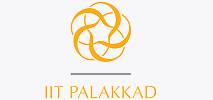Course Title and Code
Fundamentals of Semiconductor Devices (EE5510)
Course Credit
3-0-0-3 (Lecture-Tutorial-Practical-Total Credits)
Category
ERC
Prerequisites
None
Course Content
| Sl. No. | Topic | Lecture (hours) |
|---|---|---|
| Module I | Physics of Semiconductors | |
| 1 | Introduction: Geometry of periodic crystals, review of classification of crystals, Miller indices | 2 |
| 2 | Equilibrium carrier concentration: Thermal equilibrium, intrinsic and extrinsic semiconductors, Schrodinger equation, Kronig-Penney model, Bloch’s theorem, k-space concepts, density of states, Fermi-Dirac statistics, doping concepts. | 12 |
| 3 | Recombination-generation of carriers and carrier transport: Recombination mechanisms, mobility, drift, diffusion. | 5 |
| Module II | Analysis of Semiconductor Devices | |
| 1 | Semiconductor equations: Transport, continuity and Poisson equations. | 3 |
| 2 | p-n and metal-semiconductor junctions: Band diagram, I-V characteristics, Zener tunneling, DC and small-signal characteristics. | 8 |
| 3 | Metal-oxide-semiconductor (MOS) junction: Electrostatics, flatband voltage, threshold voltage, influence of fixed and interface trap charges. | 6 |
| 4 | MOS field-effect transistors (MOSFETs): Physics, square-law theory, I-V characteristics, short-channel effects. | 4 |
| 5 | Optoelectronic devices: Analysis of LEDs, photodetectors, solar cells. | 2 |
Total: 42 hours
Learning Objectives
This is an introductory graduate course on the fundamentals of semiconductor devices. In the first part of the course, students are introduced to concepts in solid-state physics and the semiconductor equations. In the second part, students will apply these concepts to study different devices.
Learning Outcomes
- A fundamental understanding of factors influencing carrier concentration in semiconductors.
- Understanding of the influence of materials and device design on device performance.
- Ability to apply mathematical techniques to compute device parameters and use simulators.
- Experience in electrical characterization using a semiconductor parameter analyser and DC probe station.
Teaching Methodology
Classroom lectures
Assessment Methods
Written examinations/quiz, continuous assessment
Textbooks
- Semiconductor Device Fundamentals by R. F. Pierret, Pearson, 2nd edition, ISBN-10: 0201543931, ISBN-13: 978-0201543933.
- Solid State Electronic Devices by B. G. Streetman and S. Banerjee, Pearson Education India, 7th edition, 2015, ISBN-10: 9332555087, ISBN-13: 978-9332555082.
- Advanced Semiconductor Fundamentals by R. F. Pierret, Pearson, 2nd edition, ISBN-10: 013061792X, ISBN-13: 978-0130617927.
- Physics of Semiconductor Devices by S. M. Sze and K. K. Ng, Wiley-Interscience, 3rd edition, ISBN 978-0-471-14323-9.
References
- Operation and Modeling of the MOS Transistor by Y. Tsividis, The Oxford Series in Electrical and Computer Engineering, ISBN-13: 978-0195170153.
- Fundamentals of Modern VLSI Devices by Y. Taur and T. H. Ning, Cambridge University Press, ISBN-13: 9780511601538.
- Introduction to Solid State Physics by C. Kittel, Wiley, 8th edition, ISBN-10: 9788126535187.
